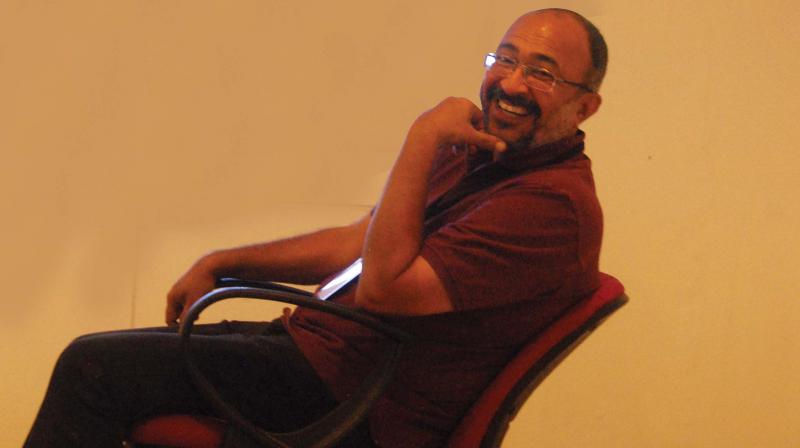An Anjum-Shaji combo
Rajabali had written films - like Pukar, The Legend of Bhagat Singh and Rajneeti.

The first few seconds with Anjum Rajabali is going to surprise you, if you had expected him to behave anything like a celebrity. His interest begins with you, the person he meets. And this, he says, has nothing to do with him having been a student of psychoanalysis once upon a time. It is just that people interest him. And as a writer, that is the one prerequisite you need. That’s what he’d tell his students. Rajabali had written films – like Pukar, The Legend of Bhagat Singh and Rajneeti - for 25 years now, worked as a script consultant too, and then somewhere along became equally known for his teaching of screenwriting. In Thiruvananthapuram for a session at the Toonz Masters Animation Summit, Rajabali talks of fond memories, of the place, and of the people. Even now, he is writing for one of his favourite filmmakers - Shaji N Karun - a script titled The Lotus Tree.
“Our association began in 2006 when he wanted to do a film based on the life of Raja Ravi Varma. I wrote that but unfortunately by then that film was already being made. So we gave that up. We worked together again for another film but that too didn’t work out. So this is now the third film we are working on.
It is based on a story I had written. It is one of my favourite stories, about a father and a daughter, that’s been lying with me for a long time. One evening, I narrated the story to him and then six months later, he called to ask if I could script it for him. I said of course! No one understands women and feminine nature the way Shaji does, in the film industry,” Anjum says, sitting at a conference hall in Technopark where his session on ‘Indian Mythology and its Relevance to Modern Screenwriting’ would begin in two hours.
His classes are legendary. If a student has doubts about the success he’d make, Anjum would tell her, ‘Remember your Sir’. Out of the 10 releases he has had, Anjum says seven are flops. “And I am still standing am I not?” But then he works with a deep sense of involvement, so much so that, the people who hired him would feel they got him cheap.
It was not always like that. He too had once been afraid. When all he dreamt had been to be a psychoanalyst and then he stumbled upon writing without any idea about it. “I am a writer completely by accident. But if you ask me if my experiences of psychoanalysis help, I’d say it goes hand in hand. I’d for instance think here is a girl looking at me with great interest, but inside her head she could be thinking he is a moron. Storytelling is a different kind of parallel. You don’t need to make sense in real life. But you need to in a story.”
Here he talks about the Bilkis Bano gang rape case. The High Court has upheld life imprisonment for 11 on Friday. “She was five months pregnant and had a three-year-old child, and there were all these men who were like brothers in her village. Those men killed 14 members of her family, smashed the head of her child and gangraped her. What is the sense in that? As a citizen, I would want the perpetuators tortured and killed. But as a writer and a psychoanalyst, I want to look at it from the point of view of the perpetuators. I am not talking about justifying, validating or rationalising. I am talking about understanding the other.”
He could be deep like that. Anjum feels strongly about writers too. It bothers him to see the injustice and exploitation meted out to them. He has been fighting for causes for years now. In 2014, he had run a campaign to vote for secularism. When the FTII issue came, he had stood with the students. Anjum is Honorary Head of Screenplay Writing there, and also Head of Screenwriting at Whistling Woods.
“It disturbs me to see how humans are so ready to reject reality - murder, lynching, killing children and raping pregnant women. Why today - what about Rwanda where a million people were killed, what about 1984 when Hindus killed Sikhs, Babri Masjid, 2002 (Gujarat carnage).” He writes sometimes of these subjects that haunt him. Like a series on Mahabharata from the point of view of the women.
“It is very difficult to imagine a world without trust,” Anjum says, quoting from Shakespeare’s Hamlet, Polonius’s last advice to Laertes: ‘This above all: to thine own self be true, And it must follow, as the night the day, Thou canst not then be false to any man.’

